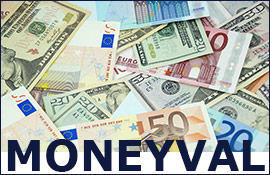Targeted Financial sanctions
The UN sanctions regime was first established by Resolution UNSCR 1267 (1999). United Nations Security Council imposes a number of measures against individuals and entities associated with Al-Qaida. The sanctions regime has been further strengthened and modified by a number of subsequent resolutions (for the full list see the website of the UN Sanctions Committee). The measures to be implemented by countries according to the resolutions include asset freeze, travel ban and arms embargo in respect of individuals designated by the UN Sanctions Committee. In addition, the resolutions provide for procedures for the listing and de-listing of individuals, access to funds for basic and extraordinary expenses, protection of rights of third parties, amongst other issues.
Following the terrorist attacks of 11 September 2001, the UN further strengthened the sanctions regime by adopting the UNSCR 1373 (2001), which requires countries to put in place mechanisms enabling the designation of terrorists and persons associated with terrorism at national level and the consequent application of freezing measures. Procedures introduced should also enable the processing of requests made by foreign countries.
A further scope of activity of the UN Security Council taken under Chapter VII of the UN Charter has been formulated by the adoption of Resolution 1540 (2004), which obliges states to refrain from supporting non-state actors from the proliferation of weapons of mass destruction (for further information in this context, see the section Financing of proliferation). This was reiterated by Resolutions 1718 (2006) and 1737 (2006) (and following resolutions– for the full list see the website of the Security Council 1718 Committee and the website of the Security Council 1737 Committee), by which the UN Security Council imposed measures countering proliferation of WMD in respect of the Democratic People’s Republic of Korea and the Islamic Republic of Iran, respectively. Amongst others, these measures included travel bans and assets-freeze of designated persons and entities or their associates.
The FATF Standards require countries to implement the above mentioned UNSCR concerning the establishment of mechanisms enabling the application of asset-freezing measures with regard to individuals associated with terrorism or proliferation or financing thereof.
Apart from monitoring the implementation of the FATF Recommendations in course of its evaluations, MONEYVAL has also been following legislative measures adopted by the EU with regard to the UN sanctions regime, as well as the jurisprudence of the CJEU and the ECHR. It regularly invites relevant experts to its plenaries to present the latest developments in this field.
Reference documents
Relevant Council of Europe websites
Conference of the Parties (COP) to the CETS 198



